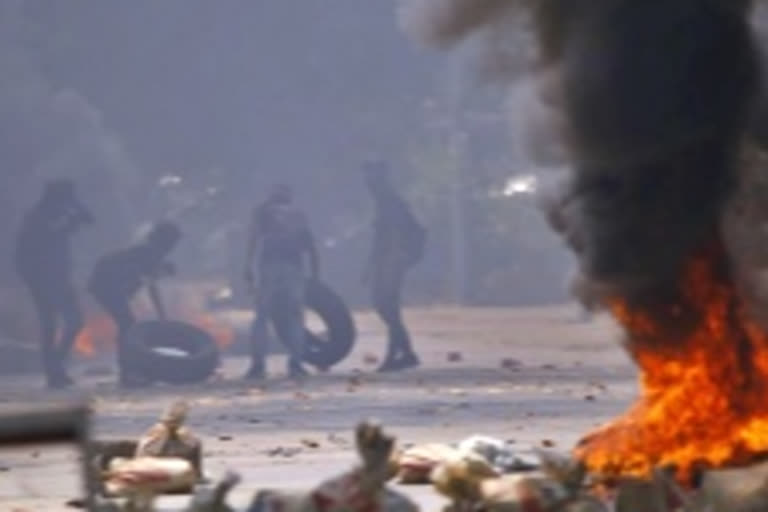New Delhi: Cautioning the United Nations Security Council of a possible civil war against the rising military atrocities in Myanmar, UN special envoy to country Christine Schraner Burgener urged a special session of the UNSC to take action. Burgener emphasized that the council should consider potentially major action to reverse the course of events in Myanmar, saying a "bloodbath is imminent."
There has been a continuous appeal by the International community to bring an end to the atrocities in Myanmar after the Military junta seized power, detaining the democratically elected leader Aung San Suu Kyi.
Significance of UNSC's role in bringing a solution to the political crisis in Myanmar
Speaking to ETV Bharat, foreign policy expert and former Indian diplomat Achal Malhotra said, "the UNSC has an important role to play in a situation such as one which is now prevailing in Myanmar. However, experience shows that UNSC has several limitations. First and foremost, there must be a consensus between all the 15 members of the UNSC on the approach it would like to adopt in a situation that is prevailing in Myanmar. UNSC at the best can pass resolutions or imposed sanctions but even for that, there must be a consensus. In the case of Myanmar, it is quite clear that most of the members would like peace to prevail, restoration of democracy and release of Aung San Suu Kyi and other leaders who are arrested.
Also read: Myanmar junta deepens violence with new air attacks in east
But at the same time, there is no consensus on the measures to be adopted particularly-should there be punitive sanctions against Myanmar or should the situation be addressed by way of engagement with the military Junta," he added.
On the other hand, in a closed-door consultations meeting in the United Nation Security Council on the Myanmar issue, India strongly condemned the violence in Myanmar and condoled the loss of innocent lives.
India's permanent representative to the UN ambassador PS Tirumurti in his remarks made several points in the UNSC on Myanmar's political crisis including- the situation to be resolved, the need for greater engagement, meet the hopes and aspirations of the people, extend assistance to Rakhine state development programme.
During the meeting, India also urged for maximum restraint over the violence being carried out in Myanmar by the military junta, highlighted the steadfast commitment to democratic transition and appealed for the release of detained leaders. Tirumurti in his remarks also welcomed the efforts made by the ASEAN (The Association of Southeast Asian Nations) regarding Myanmar's military coup.
Further commenting on India’s role in the UNSC for keeping forth the Myanmar issue, Achal Malhotra reiterated “Myanmar is an important neighbour for India. India has security, a strategic and economic interest in the country. Therefore, India would naturally like to see that peace and stability prevail in Myanmar and accordingly, India would like to make use of its presence in the UN Security Council to push the resolution of the current scenario and attainment of the objectives through the efforts of the UNSC. But I am not sure whether India would promote or support the imposition of severe economic sanctions on Myanmar or any such measures which would lead to the isolation of Myanmar".
Also read: Myanmar junta makes ceasefire offer, but not to protesters
“Since the 1990s, India has adopted a policy of engagement with military rulers in Myanmar and even the indication at the moment is that India would prefer to engage them rather than isolate them. India is aware of the fact that it needs to contain China’s influence in the country and should India be seen on the side who want to isolate Myanmar, China is likely to move in even with an added strength and this may hurt India’s interest”, he added.
Moreover, amid the ongoing blood battle in Myanmar, the regional security and economic consequences are getting worse and could deteriorate. The influx of refugees from Myanmar to Indian borders have increased manifold ever since the military coup began in Myanmar. And as rightly pointed out by the UN envoy to Myanmar in UNSC, the influx is likely the beginning.
Therefore, what is expected is that the regional actors must come together to play their unique and important roles in convincing the military to turn down and help navigate an orderly and peaceful way out of this situation.
Ever since the coup began in Myanmar, the security forces killed at least 107 individuals including seven children, on March 27. And the situation is going to get even worse further.



